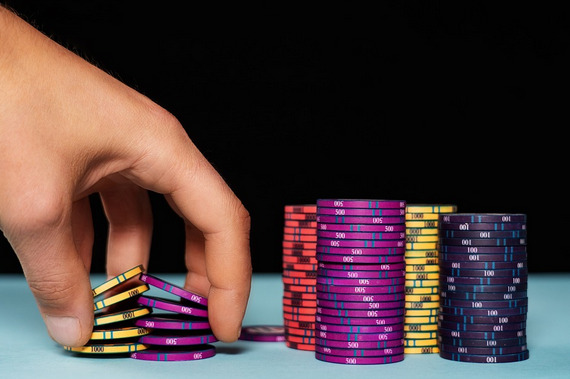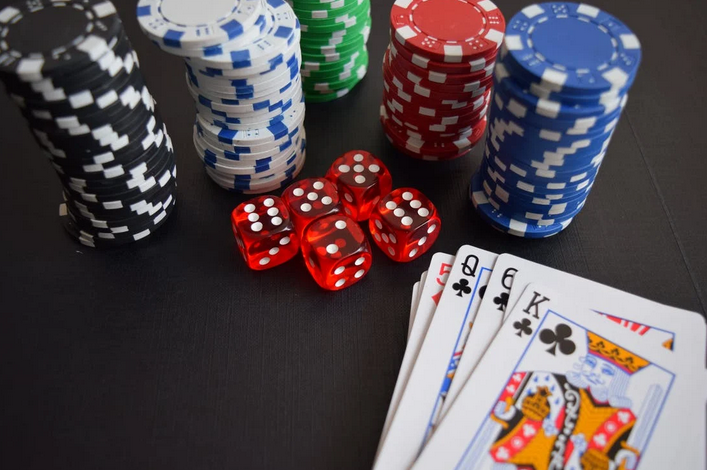Mental Strategies in High-Stakes Poker: Psychology Behind Elite Player Decision-Making
Beyond its glitz and glamour, poker is a battleground of wits, where every move is a calculated decision influenced by a blend of skill, strategy, and psychology. In the high-stakes arena, where fortunes are won and lost in the blink of an eye, elite players navigate a complex mental landscape, relying on astute psychological strategies to outmaneuver opponents and emerge victorious.
The Power of Perception

At the heart of high-stakes poker lies the art of perception, the ability to read opponents like an open book while guarding one’s own intentions with an impenetrable veil. On the other hand, PGSLOT unravels an entirely different dimension of the gambling world. Unlike the nuanced strategies and psychological interplay in poker, slots operate on a different rhythm altogether. They are a whirlwind of change, driven by randomness and algorithms rather than human interaction. Elite players harness their understanding of human psychology, studying opponents for tells, subtle cues that betray emotions or intentions.
Emotional Mastery and Decision-Making
In the high-pressure environment of high-stakes poker, emotions run high. The ability to maintain emotional equilibrium, regardless of wins or losses, is a hallmark of elite players. They master the art of detachment, making rational decisions devoid of emotional bias. Embracing a stoic mindset allows them to navigate the rollercoaster of fortunes without succumbing to emotional swings that might cloud judgment.
Psychological Warfare and Mind Games
The mind games in high-stakes poker extend beyond the cards. Elite players leverage psychological warfare, employing strategic maneuvers to induce doubt or tilt in opponents. From deliberate pauses to unexpected raises, they meticulously orchestrate their actions to unsettle adversaries and gain a psychological edge.
Calculated Risks and Probability

While poker is a game of uncertainty, elite players base their decisions on calculated risks and probabilities. They possess an innate understanding of odds, using mathematical prowess to assess the potential outcomes of each move. This strategic approach enables them to make informed decisions, balancing risk and reward with precision. Adaptability is a key attribute of elite poker players. They possess the agility to adjust their strategies on the fly, reacting to shifting dynamics at the table. Whether it’s altering their playing style, adapting to opponents’ tactics, or capitalizing on changing circumstances, their ability to remain flexible is a crucial component of success.
Patience and Discipline
Patience is indeed a virtue in high-stakes poker. Elite players exhibit remarkable discipline, waiting for opportune moments to strike. They understand the value of biding their time, resisting the temptation to play every hand, and capitalizing on strategic openings.
In the intricate dance of high-stakes poker, the psychology behind elite player decision-making is a captivating spectacle. It’s not just about the cards; it’s about the mind games, emotional fortitude, and strategic prowess that elevate the game to an art form. Understanding the psychology at play unveils the intricate layers of this mind game, showcasing the brilliance and complexity that define the world of high-stakes poker.…




 When playing poker, the most crucial skills you can develop is the ability to read your opponents. Understanding their actions, behaviors, and body language can provide valuable insights into what they might be holding in their hands. Pay attention to the betting patterns of each player. Are they consistently aggressive or more passive? Do they tend to raise with strong hands or bluff frequently? Observing these tendencies allows you to create a profile for each opponent at your table. Watch how your opponents react during gameplay.
When playing poker, the most crucial skills you can develop is the ability to read your opponents. Understanding their actions, behaviors, and body language can provide valuable insights into what they might be holding in their hands. Pay attention to the betting patterns of each player. Are they consistently aggressive or more passive? Do they tend to raise with strong hands or bluff frequently? Observing these tendencies allows you to create a profile for each opponent at your table. Watch how your opponents react during gameplay.

 The draw for many people when playing poker is its money-making potential. While not everyone plays solely to make money, it’s hard to ignore that huge sums of cash are up for grabs in various poker games. For starters, countless tournaments held throughout the year offer large prize pools and significant payouts. These tournaments often attract professional players worldwide who have honed their skills and strategies over years of gameplay.
The draw for many people when playing poker is its money-making potential. While not everyone plays solely to make money, it’s hard to ignore that huge sums of cash are up for grabs in various poker games. For starters, countless tournaments held throughout the year offer large prize pools and significant payouts. These tournaments often attract professional players worldwide who have honed their skills and strategies over years of gameplay.
 The most important thing you can do as a
The most important thing you can do as a  Staying calm under pressure is something above all, which will help you succeed in poker. When you have a bad hand, it can be tempting to give up and fold. However, this is often the wrong decision. If you’re able to stay calm and play your hand well, you may be able to turn it into a winning one. This takes a lot of practice and experience, but it’s something that you’ll need to learn if you want to be a successful poker player.
Staying calm under pressure is something above all, which will help you succeed in poker. When you have a bad hand, it can be tempting to give up and fold. However, this is often the wrong decision. If you’re able to stay calm and play your hand well, you may be able to turn it into a winning one. This takes a lot of practice and experience, but it’s something that you’ll need to learn if you want to be a successful poker player.